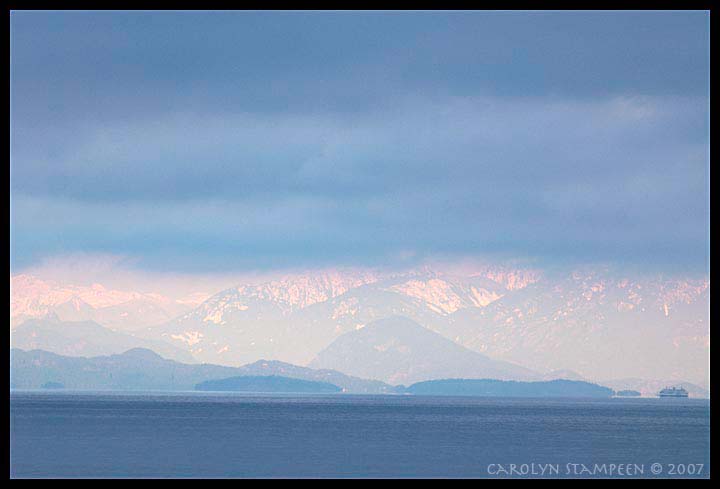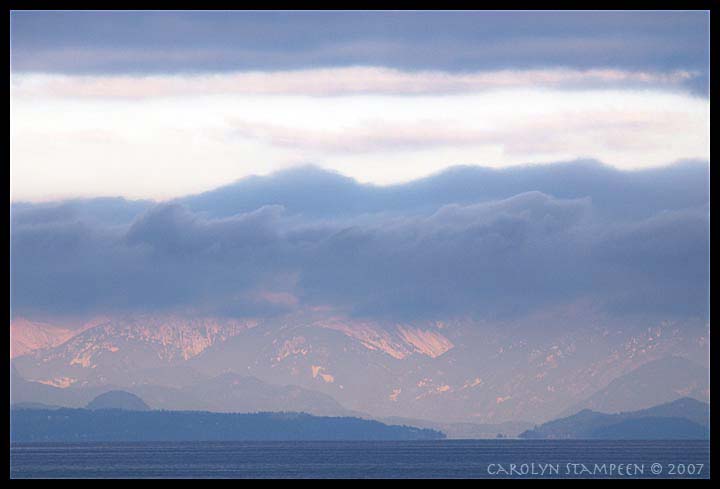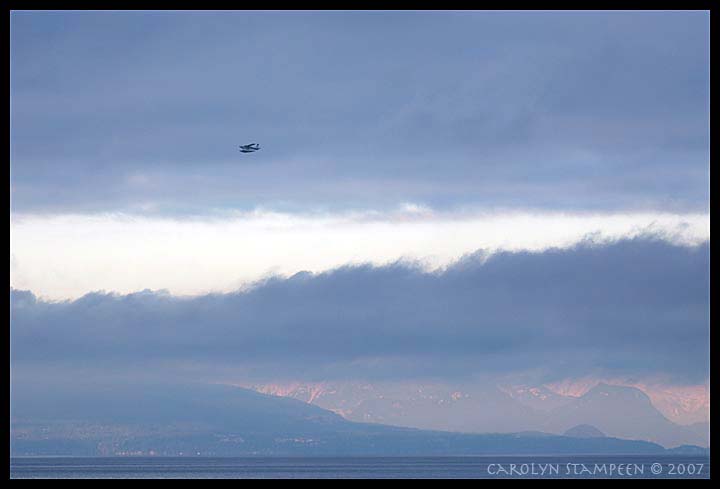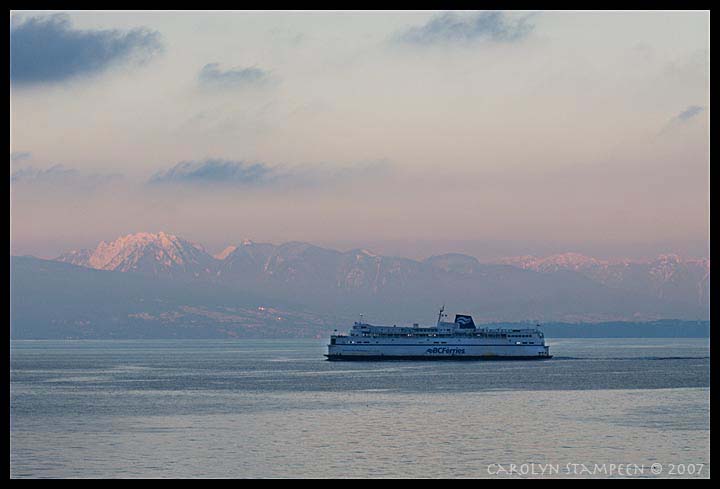When I take photos, it’s always a challenge to then process them. Often photography has occupied the time I do have free, so it doesn’t leave much time to actually do anything with the photos. Processing usually comes down to wanting to send some images to folks I think may be interested, so I quickly scan new shots, picking ones that catch my eye immediately and Save for Web so that they are suitable for emailing. Of course, I always mean to come back, to do a better processing job or to take a look for possible new shots that I like or like better… And it means that I have a lot of jpeg folders with the results of some of these quick processing results. Most of the ones here actually took a little more work than typical.
On this day, I was aboard the ferry from Vancouver Island to the mainland. It was late January, so well in the midst of the rainy season that replaces what most of the rest of Canada sees as snow for precipitation during winter months. It was grey, drizzly and a cold wind was blowing, so I pretty much had the outside deck to myself, with the odd smoker braving the elements for short periods in order to inhale some carcinogenic relief into his or her lungs. Clouds and fog banks shrouded any visible shoreline. From past ferry rides, though, I knew that anything could happen. Maybe I would see another orca leap out of the water! If one did, alas, I wasn’t looking in the right direction. However, as we got closer to the mainland, off in the distance, the monotonous grey was broken by a bight pink. At first, the splash of pink was all I could discern.
I pointed my 70-300mm telephoto lens and started shooting. The camera had a much closer view of the distant magic than did the naked eye. This was the early days of digital cameras and I was shooting with a Nikon D70s that my fellow had given me – a top of the line prosumer model of the time. It was a great camera, but higher ISOs had significant grain, so shooting at low ISOs was ideal. However, I was on a moving, vibrating boat, shooting without a tripod in low light. I needed to shoot at higher ISOs for a sharper image, trading off ugly grain for a downright blurry image. But there are always ways around things. Knowing to expect grain, I shot accordingly: I shot in burst mode. Thing about digital grain: it’s different in each image. I could bring the images into the same Photoshop document, align them, then stack the images in a way that reduced grain. Nowadays, we have many more ways of removing camera grain from our images — easy, quick, affordable — should I want to revisit these images.
Because waves also are never the same from shots taken in sequence, this processing also resulted in a flattening of the water, which I rather like. It’s similar to flattening rough water by using a long exposure. Fortunately, the clouds weren’t moving fast enough for any real impact to be made there. The pinks still aren’t as brilliant as they were in person. The colour was a result of the setting sun lighting up snow in mountains with an amazing brilliant pink that was a beacon in the otherwise very dreary world. As we got closer and closer to land, the clouds and fog (are they really different entities in this land?) began to lift, revealing more of the natural, grand beauty of British Columbia.
This is also a case for taking images even if you are unsure how they will come out. Shooting with a telephoto, with the camera having a better view than my eye, even enjoying the modern area of instant gratification by viewing images on the back of the camera, it wasn’t obvious if these shots were hits or misses. It turns out that, personally, they are images that I love a lot.
This was the last ferry ride I took to the Island; after this, I discovered float planes. A little more expensive, but 15 minutes instead of a couple of hours for the trip itself and getting to the ferry building and waiting for the ferry to arrive can end up with half a day gone.




